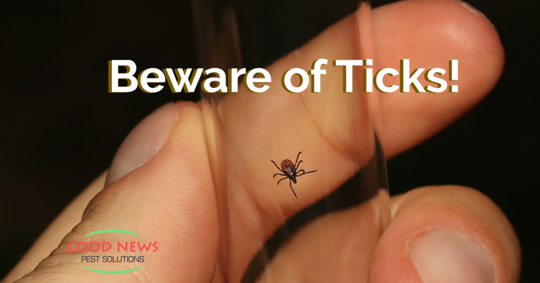Summer is tick season. Not just on the Gulf Coast of Florida but across the map. Anywhere things grow wild and free, from your backyard to the campground, you want to be on the lookout for ticks. That goes for yourself and your pets. But while ticks don’t get as much attention as some of the more prolific insect pests - like mosquitoes, flies, and roaches - all that is about to change.
New Problems
Ticks are well known as vectors for diseases such as Lyme disease, Ehrlichiosis, Babesiosis, Powassa, Anaplasmosis, Rocky Mountain Spotted Fever, and Tularemia. But in recent years, ticks have been found to be associated with Alpha Gal Syndrome. If you haven’t heard of that, it’s a condition that creates an allergy in the host – an allergy to red meat.
It’s actually a delayed allergic reaction to a sugar molecule that’s found in most mammals, except humans and primates. Once infected, usually by the bite of a Lone Star tick, a few hours after eating meat, especially beef, pork, or lamb, the person can suffer anything from itching and hives to full-blown anaphylaxis requiring medical treatment. Some folks may even exhibit a reaction after drinking milk and even some medications.
New Populations in New Places
Researchers had predicted this would be an active tick season. But now they point out at least four varieties of ticks are spreading beyond their normal habitat, staying active longer, and reproducing rapidly.
Marc Lame, an entomologist at Indiana University’s School of Public and Environmental Affairs, told the New York Times, “There are more and different types of ticks around than there used to be, and I don’t see that stopping anytime soon.”
Black-legged Deer ticks, or Ixodes scapularis, the variation we see most often in the Sunshine State, are spreading north into New England and farther west, even popping up in Mexico. Gulf Coast ticks, usually found along the Gulf of Mexico and Atlantic coastlines, are also moving well up the coast.
The Lone Star tick that spreads alpha gal has been spotted as far north as Canada. And the Asian long-horned tick, an invasive species from New Zealand, is moving west now that they have the East coast locked down. That’s not good news, as a single female Haemaphysalis longicornis can produce 2000 eggs at a time. One female tick can start a colony.
Ticks can be active anytime the temperature rises above 39 degrees Fahrenheit, and scientists believe the changing climate is a major factor in tick populations booming and spreading. Not only can ticks start earlier and stay active later into the year, the animals they hitchhike on, like deer and mice, are more active and have a better chance of surviving the winter. As temperatures slowly rise across the continent, more and more territory is opened up for ticks.
Preventative Measures
Reported cases of Lyme disease are also on the rise. The EPA reports incidents of the bacterial illness skyrocketed after the COVID-19 lockdowns to more than twice what they were 15 years ago. Babesiosis, Powassa and Anaplasmosis all tend to be rarer in humans – at least until recently. These tick-borne diseases are also spreading.
Just like mosquitoes, the best defense against ticks is to wear outfits with brighter colors and longer sleeves, as well as long pants. Tucking your cuffs into your socks will help and wearing white socks will help you see the tiny dots too. If you go hiking or camping, do a thorough tick check when you come home. You’ll want to check your thighs, crotch, and the back of your head. Remove all your clothes and toss them in the dryer on high heat for 10 minutes while you hop in the shower.
Don’t forget to check your canine companions as well. They are far more likely to explore an area that has ticks, and their thick fur is a warm and convenient hiding place for Dermacentor variabilis - American dog ticks. Check with your Veterinarian to find out their latest recommendations.
If you find a tick on yourself or your pet, use tweezers to pull it straight out. Position the tweezers directly under the spot where the tick is attached to the skin and pull upward with steady pressure. Do not twist or jerk the tick. Doing so can kill the tick with the head still inside. If the tick is too deeply embedded, apply heat to it and it will often back out. Once the tick is removed, clean the bite site with rubbing alcohol or hand sanitizer.
As mentioned, one tick can start a whole new colony. If you discover your home is infested, you will need professional help. Our proprietary tick treatment is outside of our usual Go Green Perimeter Plus, but like all our solutions, is as safe as possible for your family. For more information, please give us a call!

